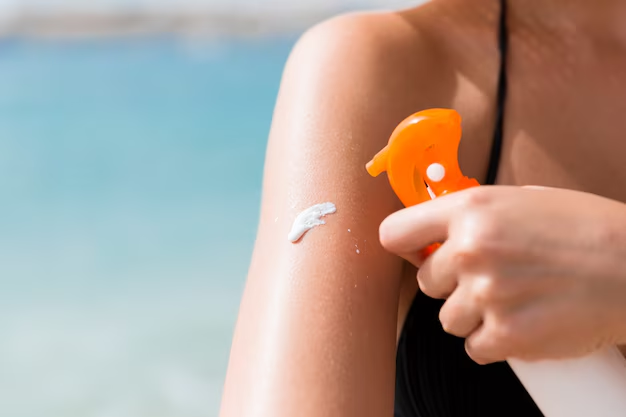Safeguarding Your Skin: Essential Steps to Prevent Skin Cancer
In today's fast-paced world, taking a moment to prioritize our skin health is more crucial than ever. Skin cancer, the most common form of cancer, affects millions globally each year. However, with some informed choices, it's possible to reduce your risk and protect your skin effectively. Let's delve into practical methods to minimize the risk of skin cancer while fostering healthy skin habits that can last a lifetime.
Understanding Skin Cancer and Its Impact
Skin cancer primarily arises due to the uncontrolled growth of abnormal skin cells, often triggered by UV radiation from the sun or tanning beds. There are three major types of skin cancer: basal cell carcinoma, squamous cell carcinoma, and melanoma.
- Basal cell carcinoma: The most common, this type rarely spreads but can cause significant local damage if untreated.
- Squamous cell carcinoma: With a higher potential to spread, this cancer usually appears on sun-exposed areas.
- Melanoma: The deadliest of skin cancers; it can develop rapidly and spread to other body parts.
Raising awareness about these types can empower individuals to act proactively.
Daily Sun Protection: Your First Line of Defense
Choose the Right Sunscreen
Selecting a sunscreen with broad-spectrum protection (guarding against both UVA and UVB rays) is essential. SPF 30 or higher is recommended for daily use. Remember, no sunscreen can block 100% of UV rays, hence the need for additional protection measures.
Apply Sunscreen Properly
Use enough sunscreen: One ounce (about a shot glass full) should cover your entire body. Apply it 30 minutes before sun exposure and reapply every two hours, or after swimming or sweating. Include often-missed spots like your ears, neck, and the tops of your feet.
Embrace Sun-Safe Clothing
Invest in clothing that offers UV protection. Clothing with a UPF (Ultraviolet Protection Factor) of 50 or more is considered excellent. Wear wide-brimmed hats and UV-blocking sunglasses to protect your face and eyes.
Seek Shade and Time Your Exposure
The sun's rays are strongest between 10 a.m. and 4 p.m. Utilize umbrellas, trees, or other shelters during these hours to reduce direct exposure. If your shadow is shorter than you, it's time to find shade.
Be Mindful of Tanning
Dangers of Tanning Beds
Despite misconceptions, tanning beds are not a safe alternative to sun exposure. They emit concentrated UV radiation which significantly increases the risk of all skin cancers.
Healthier Alternatives
Consider self-tanning products or spray tans for a sun-kissed look without the risks associated with UV exposure. Ensure you choose products suited for your skin type to avoid irritation.
Skin Exams: Early Detection Saves Lives
Regular self-examinations and dermatologist check-ups form a vital part of skin cancer prevention.
Perform Monthly Self-Exams
Check your skin monthly for new growths or changes in existing moles. Use a mirror to inspect hard-to-see areas and note:
- Asymmetry: One half doesn't match the other.
- Border: Edges are irregular or blurred.
- Color: Multiple or unusual colors within a single mole.
- Diameter: Larger than a pea.
- Evolution: Any change in a mole's size, shape, or color.
Schedule Professional Screenings
It's advisable to visit a dermatologist annually or more frequently if you're at a higher risk. They can provide a thorough skin check and guidance tailored to your particular needs.
Nutrition and Lifestyle: Building Strong Defenses
A balanced diet and healthy lifestyle choices can complement your skin cancer prevention strategy.
Nutrient-Rich Diet
Include foods high in antioxidants and omega-3 fatty acids, like berries, leafy greens, and fatty fish. They help repair and rejuvenate skin from the inside out, potentially lowering cancer risk.
Stay Hydrated
Hydration is critical for maintaining healthy skin. Aim for at least eight glasses of water a day to keep your skin cells plump and functional, enhancing their barrier effectiveness.
Avoid Smoking and Excessive Alcohol Consumption
Smoking and excessive drinking can weaken your immune system, impair skin health, and increase cancer risks. Reducing or eliminating these habits can significantly benefit your overall health.
Special Considerations: Myths vs. Reality
Skin Cancer Doesn't Discriminate
While fair-skinned individuals are at higher risk, skin cancer can affect anyone, regardless of skin tone. Everyone needs to protect their skin and be vigilant about changes.
Cloudy Days Are Not Safe Days
Up to 80% of UV rays can pass through clouds, making it essential to practice sun safety even on overcast days.
Genetics and Skin Cancer
If skin cancer runs in your family, you're at a higher risk. Genetic factors can predispose individuals, emphasizing the need for heightened preventive measures and regular screenings.
Incorporating these steps into your daily routine doesn't just prevent skin cancer; it fosters overall skin health, boosting confidence and well-being. By embracing protective habits, you're not only acting in the moment but setting a proactive example for others.
Quick Tips Summary: 🛡️🔆
- Use Broad-Spectrum Sunscreen: SPF 30+, 30 mins before exposure.
- Reapply Regularly: Every 2 hours, after swimming/sweating.
- Wear UV-Protective Clothing: Hats, sunglasses, UPF-rated clothes.
- Avoid Tanning Beds: Opt for safer self-tanning products.
- Perform Regular Skin Checks: Monthly self-checks, annual professional exams.
- Adopt a Nutrient-Rich Diet: Focus on hydration, antioxidants, and omega-3s.
- Remember Everyone's at Risk: Protect all skin types and be cautious on cloudy days.
By prioritizing these tips and staying informed, you empower yourself to maintain healthy, radiant skin while mitigating the risk of skin cancer. Each mindful choice contributes to a lifetime of skin protection.

Related Articles
- Are Breast Cancer Lumps Painful
- Are Chills a Sign Of Cancer
- Are Colon Spasms a Sign Of Cancer
- Are Lytic Lesions Always Cancer
- Are Polyps Cancer
- Can a Blood Test Detect Cancer
- Can a Ct Scan Detect Cancer
- Can a Dexa Scan Show Cancer
- Can a Gastric Emptying Scan Show Cancer
- Can a Lung Biopsy Cause Cancer To Spread
